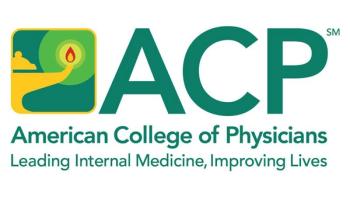
Aflibercept helps in ME patients with DR after cataract surgery
Patients with diabetic retinopathy have a high risk of developing macular edema after cataract surgery. Intravitreal injections of aflibercept might result in fewer patients developing macular edema in this patient population.
Reviewed by Rishi P. Singh, MD
Take-home: Patients with diabetic retinopathy have a high risk of developing macular edema after cataract surgery. Intravitreal injections of aflibercept might result in fewer patients developing macular edema in this patient population.
The PROMISE study, which evaluated the efficacy of injections of aflibercept (Eylea, Regeneron Pharmaceuticals) to prevent macular edema after cataract surgery performed in patients with diabetic retinopathy, found that macular edema developed in fewer patients in this population compared with sham-treated patients without adverse events.
The report on a partial portion of the cohort found no meaningful differences were seen in the gains of visual acuity, but there were statistical differences in the central subfield thickness (CST) at days 7, 30, and 60 between the 2 groups.
Finding a treatment to prevent macular edema is an important goal in that its development can affect the visual outcomes after cataract surgery. It also impacts the spectrum of patients–ranging from healthy patients who undergo an uneventful cataract surgery to those who experience complications, such as a posterior capsular rupture or iris trauma, to patients with diabetes who already have retinopathies and are particularly susceptible to development of the disorder after cataract surgery, according to Rishi Singh, MD.
Dr. Singh is a staff surgeon at the Cole Eye Institute, an associate professor of ophthalmology, Lerner College of Medicine, Cleveland Clinic, Cleveland.
PROMISE design
This prospective randomized phase II trial included patients undergoing cataract surgery who had a history of nonproliferative or inactive diabetic retinopathy and no clinically significant macular edema. Patients were randomized to either intravitreal aflibercept or sham injections at surgery.
The primary study objective was to determine the incidence and severity of ocular and non-ocular adverse events over the course of the 90 days of the study. The secondary objectives were the percentage of patients in whom macular edema developed within that time frame after cataract surgery.
The definitions used were a 30% or greater increase from the preoperative baseline in the CST, a decrease in the best-corrected visual acuity (BCVA) exceeding 5 ETDRS letters from day 7, and loss of visual acuity resulting from retinal thickening. Another study endpoint was the presence of cystoid abnormalities detected on optical coherence tomography (OCT) images at any visit, Dr. Singh recounted.
The targeted enrollment was 30 patients. Dr. Singh presented data for 26 patients who completed the 90-day evaluation.
Results
A total of 26 eyes evenly divided between the two groups were included in the study. Both groups were well-matched at baseline.
Dr. Singh reported that within 90 days postoperatively, macular edema developed in a high number of patients in both groups, i.e., 69.2% of eyes in the sham group versus 61.5% of eyes in the aflibercept group. Of these, 15.4% and 38.5%, respectively, in the aflibercept and sham groups had an increase of 30% or more in the CST.
None and 15.4% had BCVA decreases of more than 5 letters from day 7; and 53.8% and 69.2% had cystoid abnormalities on OCT images. Of those that developed macular edema, 7.7% in both groups had all of the following: a 30% or greater increase in the CST, a decrease of more than 5 letters in the BCVA from day 7, and loss of visual acuity due to retinal thickening.
No significant differences were seen between the changes from baseline in BCVA and CST at day 90 between groups. No patient in either group had a loss of 15 or more letters.
About 38% of patients in the aflibercept group had 20/20 visual acuity on day 90, compared with 11.1% in the sham group. Significant differences in the CST were seen between the groups at days 30 (p = 0.02) and 60 (p = 0.01), Dr. Singh reported.
No adverse events
No serious adverse events occurred during the study. The most common non-serious events were tearing, itching, redness, foreign-body sensation, and corneal edema at 30 days in both study groups.
The most important findings that the investigators took from these data was that no adverse events developed as a result of the aflibercept injections and no patients in either groups experienced a loss of 15 letters or more of vision.
More patients achieved a 20/20 visual outcome from treatment with aflibercept and a smaller proportion of patients experienced worsening macular edema in the aflibercept-treated patients versus sham. Additional larger prospective studies are needed to further validate these findings.
“Retina specialists struggle when managing the diabetic patient with retinopathy in the setting of cataract surgery,” Dr. Singh concluded. “This phase II study shows some very interesting signals that intravitreal aflibercept is safe and effective at improving visual and anatomic outcomes after cataract surgery.”
Rishi P. Singh, MD
This article was adapted from a presentation that Dr. Singh delivered at 2017 American Society of Retina Specialists. Dr. Singh is a consultant for Regeneron Pharmaceuticals, Genentech, Biogen, Zeiss, and Optos and he has performed sponsored research for Alcon Laboratories, Genentech/Roche, Regeneron, and Apellis Pharmaceuticals.
Newsletter
Keep your retina practice on the forefront—subscribe for expert analysis and emerging trends in retinal disease management.




























